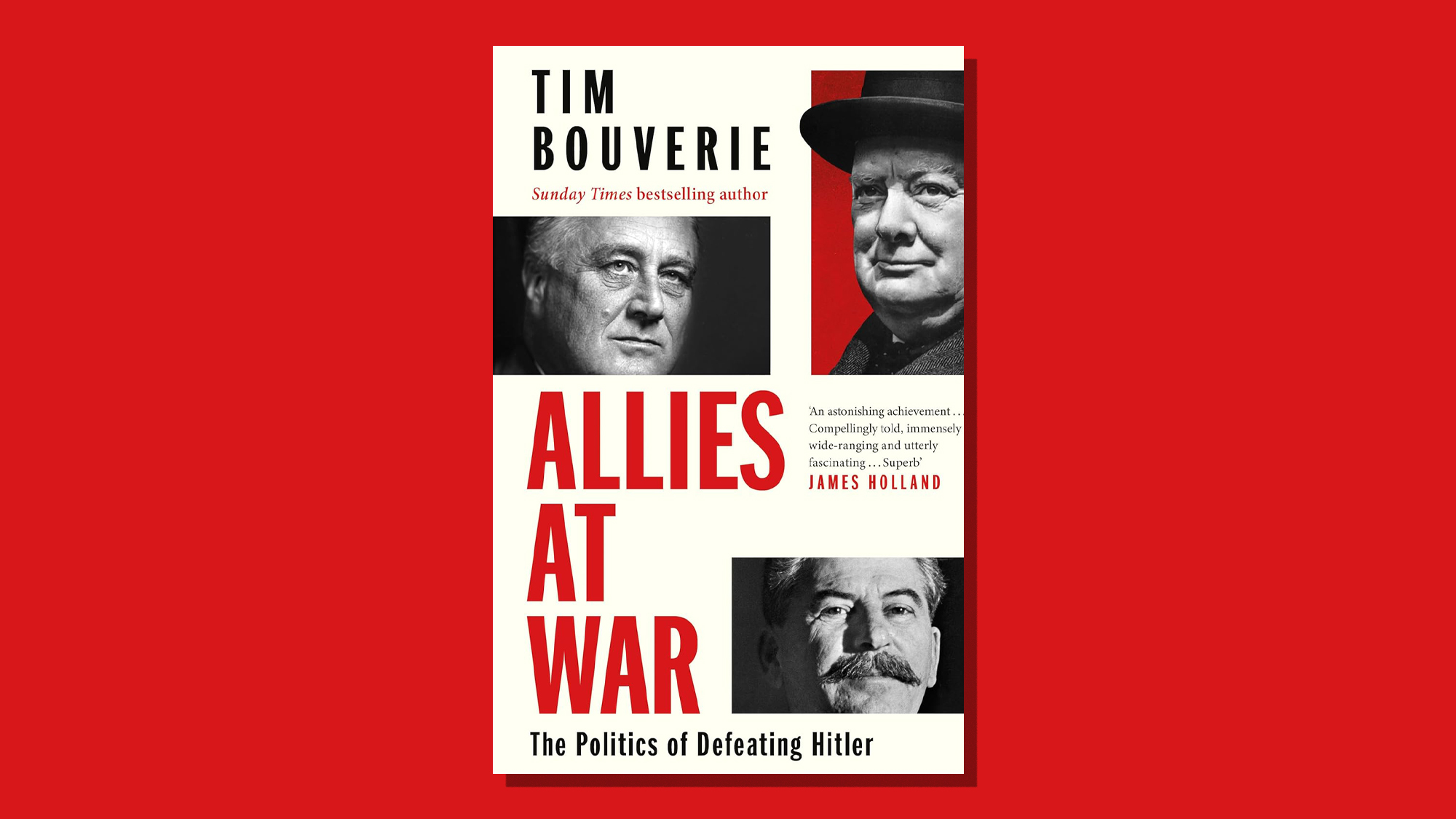Allies at War: a 'revelatory' account of the Second World War
Tim Bouverie's 'old-fashioned diplomatic history' explores the often fraught relationship between world powers

A free daily email with the biggest news stories of the day – and the best features from TheWeek.com
You are now subscribed
Your newsletter sign-up was successful
Can "anything new be said about the Second World War", asked Adam Sisman in The Observer. "Unexpectedly the answer is yes."
Among the "surprising facts" I learnt from this "revelatory book" are that pro-Russian feeling was so strong in Britain in 1942 that "War and Peace" became a bestseller, and that Mahatma Gandhi considered Hitler "not as bad as he is depicted".
A "work of old-fashioned diplomatic history", "Allies at War" focuses on the fraught and often shifting alliances between the countries that opposed the Axis powers: chiefly Britain, America, the Soviet Union, but also the Free French (led by Charles de Gaulle) and China. In the foreground are the "Big Three" leaders – Churchill, Roosevelt and Stalin – but there are also "walk-on parts" for a host of foreign ministers, ambassadors and emissaries. Although Tim Bouverie has clearly done his research, he doesn't let this overwhelm his narrative, which is consistently lucid, entertaining and witty.
The Week
Escape your echo chamber. Get the facts behind the news, plus analysis from multiple perspectives.

Sign up for The Week's Free Newsletters
From our morning news briefing to a weekly Good News Newsletter, get the best of The Week delivered directly to your inbox.
From our morning news briefing to a weekly Good News Newsletter, get the best of The Week delivered directly to your inbox.
In public, the Allies were mostly "models of civility", said Caroline Moorehead in The Spectator. But privately, their dealings were beset by "ancestral grudges", "profound suspicion" and differing views on the "sort of peace they sought".
Bouverie charts their fallings-out and reconciliations with "great sensitivity and sometimes humour", said William Waldegrave in The Independent. His book starts with "British policy based on the presumed rock of the French army" – a faith crushed in May 1940 when Nazi tanks rolled into Paris – and with "Stalin supporting the German economy and war machine". It ends with Roosevelt (and to a lesser extent Churchill) so "genuinely" trusting of "Uncle Joe" that they agree to "horrible things" at the Yalta Conference of 1945, not least the repatriation of thousands of eastern Europeans "to their deaths in the Soviet Union".
A big strength of Bouverie's book is how it takes in many of the War's lesser-known struggles and connects them to its main narrative, said Andrew Roberts in The Telegraph. He covers the Iraqi revolt of May-June 1941, and the sacrifices made by Chiang Kai-shek's Nationalist China (which lost around 15 million people) – and shows how these created "stresses and strains" which impacted relations between the Big Three. As well as being historically illuminating, his book is also "extremely timely" – for it comes at a time when, thanks to Donald Trump, the Western alliance that has "kept the peace between the Great Powers for 80 years" is under strain as never before.
A free daily email with the biggest news stories of the day – and the best features from TheWeek.com
-
 Local elections 2026: where are they and who is expected to win?
Local elections 2026: where are they and who is expected to win?The Explainer Labour is braced for heavy losses and U-turn on postponing some council elections hasn’t helped the party’s prospects
-
 6 of the world’s most accessible destinations
6 of the world’s most accessible destinationsThe Week Recommends Experience all of Berlin, Singapore and Sydney
-
 How the FCC’s ‘equal time’ rule works
How the FCC’s ‘equal time’ rule worksIn the Spotlight The law is at the heart of the Colbert-CBS conflict
-
 Bad Bunny’s Super Bowl: A win for unity
Bad Bunny’s Super Bowl: A win for unityFeature The global superstar's halftime show was a celebration for everyone to enjoy
-
 Book reviews: ‘Bonfire of the Murdochs’ and ‘The Typewriter and the Guillotine’
Book reviews: ‘Bonfire of the Murdochs’ and ‘The Typewriter and the Guillotine’Feature New insights into the Murdoch family’s turmoil and a renowned journalist’s time in pre-World War II Paris
-
 6 exquisite homes with vast acreage
6 exquisite homes with vast acreageFeature Featuring an off-the-grid contemporary home in New Mexico and lakefront farmhouse in Massachusetts
-
 Film reviews: ‘Wuthering Heights,’ ‘Good Luck, Have Fun, Don’t Die,’ and ‘Sirat’
Film reviews: ‘Wuthering Heights,’ ‘Good Luck, Have Fun, Don’t Die,’ and ‘Sirat’Feature An inconvenient love torments a would-be couple, a gonzo time traveler seeks to save humanity from AI, and a father’s desperate search goes deeply sideways
-
 A thrilling foodie city in northern Japan
A thrilling foodie city in northern JapanThe Week Recommends The food scene here is ‘unspoilt’ and ‘fun’
-
 Tourangelle-style pork with prunes recipe
Tourangelle-style pork with prunes recipeThe Week Recommends This traditional, rustic dish is a French classic
-
 Samurai: a ‘blockbuster’ display of Japan’s legendary warriors
Samurai: a ‘blockbuster’ display of Japan’s legendary warriorsThe Week Recommends British Museum show offers a ‘scintillating journey’ through ‘a world of gore, power and artistic beauty’
-
 BMW iX3: a ‘revolution’ for the German car brand
BMW iX3: a ‘revolution’ for the German car brandThe Week Recommends The electric SUV promises a ‘great balance between ride comfort and driving fun’